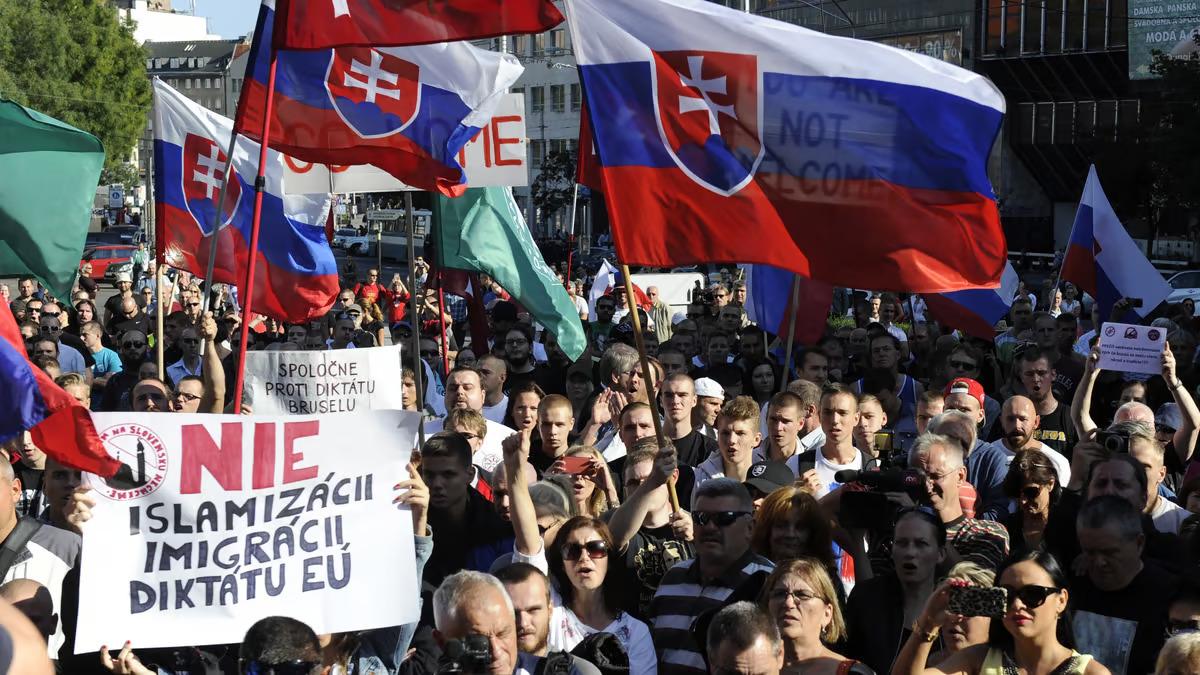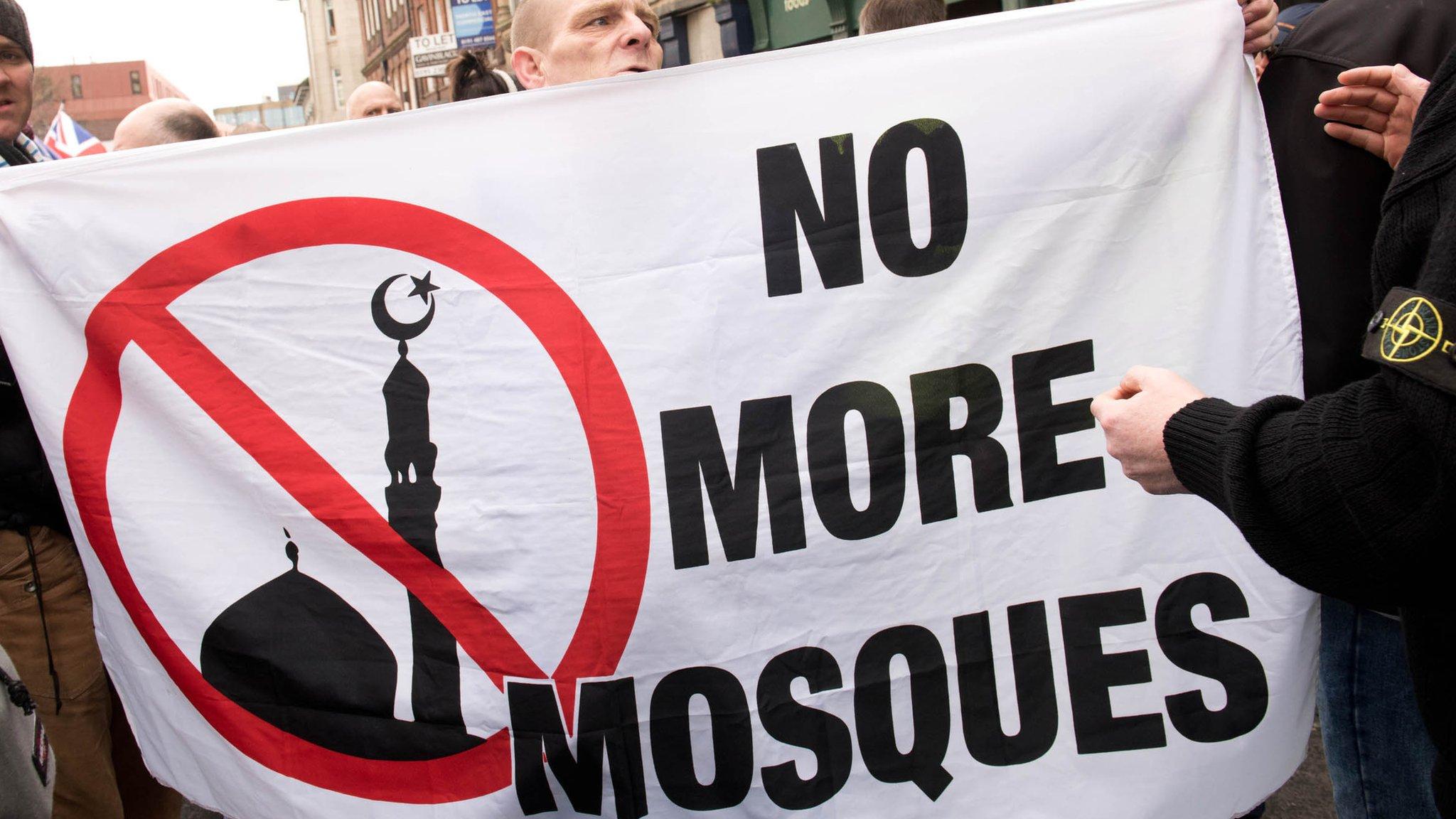Islamophobia in Europe: Reasons for deep-seated prejudices
Islamophobia in Europe requires a nuanced approach, as it involves exploring various factors that contribute to this phenomenon. It is pivotal to underscore that Europe is diverse, and experiences with Islamophobia may vary across countries and regions.
Historical context
Historical events, such as the Crusades, Ottoman Empire conflicts, or colonial histories, may have shaped perceptions of Islam in Europe and contributed to deep-seated prejudices.
Analyses indicate that as one of the reasons behind, the impact of migration from predominantly Muslim nations to Europe. Changes in demographics and cultural dynamics also led to anxiety and fear among host nations in Europe; especially those fears were not properly managed and abused by nationalist forces for their political gains.
Terrorism and security concerns played and keep playing a role in shaping public opinion. Terror attacks by individuals or groups claiming to represent Islam have also fueled negative stereotypes and fear in Europe. Sensationalized reporting and biased portrayals also contribute to the spread of stereotypes and misinformation about Muslims seeking refuge in Europe.
French Charlie Hebdo magazine with anti-prophet reports, cartoons, and caricatures keep fueling anti-Muslim and Islam mood across Europe. Political rhetoric and policies targeting and marginalizing Muslim communities prove how populist movements benefit by exploiting these fears and concerns to gain support and implement their discriminatory policies.
Historically, Islamophobia, or the fear or hatred of Muslims and Islam, has been used to describe the anti-Muslim feelings of a mostly Christian population in Europe since immigrants from Muslim countries began arriving there in the early XIV century.
Slovakia
To avoid confusion, Caliber.Az presents readers with a selection of various statements by European politicians that cannot be characterized otherwise than Islamophobia. These statements, sometimes scandalous and provocative, not only increase division and misunderstanding in society but also influence the formation of public opinion and the political agenda, deepening the problem of Islamophobia in Europe.
Slovakia with remarks by Prime Minister Robert Fico made back in 2016 remains top in the list of countries with Islamophobic moods. “Islam has no place in Slovakia!” (New Hour paper). During his campaign, Fico’s party called for the protection of Christian Slovakia from Muslim migrants.
“I don’t want there to be a self-sufficient Muslim community here. I don't want to, and let everyone say what they want. They have close-knit communities that change the nature of our lives. We cannot allow the character of the Slovak Republic to change. This is a Christian country. Tourists like to come to Slovakia because there are no explosions here, they won’t be bothered by Muslims on the streets,” Fico said in 2018 (Josef Lencz: Islamophobia in Slovakia: National Report 2019).

Another example of Islamophobia in Slovakia. The chairman of the Slovak National Party, Andrej Danko, said: “Islamization begins with kebab, and it is already underway in Bratislava.”
“Let's realize what we will have to face in five to ten years. We must do everything to ensure that not a single mosque is built in the future,” he said during discussions of changes to the law to increase the registration quota for religious communities from 20,000 to 50,000. (Reuters).
France
France is another nation ignominious for Islamophobia. Notorious for his ardent pro-Armenian position, the chairman of the Republicans faction in the French Senate, Bruno Retailleau, constantly accuses Ankara, and has repeatedly opposed Turkey’s admission to the EU, and is one of the authors of anti-Turkish resolutions. It is not surprising that he adheres to a rabid Islamophobic position (BFMTV).
Jean-Luc Antoine Pierre Mélenchon, the leader of the far-left Unconquered France, regularly demonstrates an anti-Turkish position, in particular, he expressed support for Kurdish terrorists fighting the Turkish army.
Swedes, who now so strongly dream of joining NATO, have encountered protests, and Ankara’s reluctance to see them in the same military bloc, is not far behind them.
Anna-Lena Lodenius, an ultra-right politician from the Sweden Democrats party, attacked migrants from Muslim countries at one of the forums, saying.
“The authorities provide subsidies to scammers who rob us, kill us, rape us, burn us” (Anadolu).

Sweden
The leader of the Swedish Democrats, Jimi Åkesson, went even further, declaring his desire to destroy mosques (Euronews). Thus, he called for a ban on the construction of mosques in Sweden and proposed demolishing existing ones.
Social and political relations between Europe and the Muslim world are politically fractious. Attacks in Madrid (March 2004) and London (July 2005), and the riots in suburban Paris in November 2005 and November 2007, have all been attributed to “Muslims”.
Political parties in Europe (for example the Front National in France), have mobilized and keep doing so to channel similar opinions against alleged Muslim threats to Europe.
Relations between the countries and societies of the European Union and the Muslim world have become politically consequential on several dimensions. They are foreign policy concerning the Middle East; new membership into the EU, and the vast migration of Muslims into EU states.
Some European politicians exploit fears and grievances related to immigration and cultural differences, using anti-Islamic rhetoric to appeal to a particular voter base. They also use anti-Islamic rhetoric strategically during election campaigns. It is important to understand the motives behind such tactics are to gain popular support and advance their nationalistic agendas.
Since the refugee crisis in 2015, Europe has been grappling with increasing xenophobia, particularly toward Muslim-origin immigrants. The rise of ultraradical right-wing parties, like AfD in Germany and Front National in France manifests that Europe is at a political watershed.

The mayor of the Romanian city of Iasi, Mihai Chirica, called representatives of Congo, Somalia, and Syria “nationalities that fell from the trees” (digi24).
The anti-Islamic statements and reforms carried out by Federal Chancellor of Austria Sebastian Kurz in 2017-2021 are not inferior to the above ones. He also, according to Anadolu, contributed to the institutionalization of Islamophobia in many European countries through cooperation with their governments. During the period when Kurz was the prime minister, several reforms were adopted that infringed on the rights of Muslims in Austria, for example, the ban on wearing the burqa, the closure of mosques, the creation of the Documentation Center for Political Islam, where, allegedly to combat the “politicization of Islam”, registration of Muslim institutions and organizations, anti-terrorism law and others.
What lies behind Islamophobia?
Economic factors and competition for resources are also believed to give rise to Islamophobia. Economic instability and competition for jobs can contribute to scapegoating and the targeting of minority groups, including Muslims. Issues such as cultural differences, language barriers, and perceived threats to national identity contribute to fear and prejudice.
Europe is being tested on how effectively it upholds human rights, tolerance, and pluralistic values. The surge in xenophobia is interconnected with the rising Islamophobia and hatred towards Muslims in the continent.
The presence of Islamophobia in Europe dominates areas such as employment, education, and media including the internet, the legal system, and politics.
The unanimous UN declaration to designate March 15 as the "International Day for the Elimination of Islamophobia" is a significant achievement in terms of recognizing Islamophobia as an existing and widespread problem on a global scale.
This decision has the potential to be used by civil society and politicians engaged in combating Islamophobia to exert pressure on nation-states that promote Islamophobia and hold them accountable for their actions, while also compelling these states to take concrete steps against Islamophobia.
Prejudice against Muslims in Western countries preceded the 9/11 attacks in the United States, but those events and other acts of violence by terrorists since that time have created a climate for increasing anti-Muslim attitudes in many countries.
These anti-Muslim attitudes persist despite the low numbers of homegrown Islamic terrorists in Western countries. Analysis of acts of terrorism committed by Muslims finds that fewer than one percent of Muslims around the world have been involved in any militant movement in the last 25 years.
Yet at least two research reports document discriminatory attitudes - such as those targeting cultural or religious practices - and behaviors (for example, ones that limit employment or education) focused on Muslims in several European countries in recent years.
In surveys conducted by Gallup in the United States, Great Britain, France, and Germany from 2008 to 2011 significant percentages of respondents (from 30% in France to 52% in the United States) have reported that Western societies do not respect Muslims.
A growing number of scholars summarized this climate of anti-Muslim feelings in the US and Europe under the label of Islamophobia.
Current anti-Muslim attitudes in Europe have been revealed in the speeches of recently popular political parties that call for action against Muslim minorities in their countries, through policies that restrict the dress and activities of Muslims, by the building of what are perceived to be overly large mosques, and in public opinion polls across Europe.
A recent poll conducted by the Friedrich Ebert Foundation in Germany, for example, found that between 27% and 61% of people in eight European countries believe there are too many Muslims in their countries. The same survey found that more than half of the people in these nations (except in Portugal) think that Muslims are too demanding, while a similar percentage say that Islam is a religion of intolerance.
In 2010, the Council of Europe viewed the issue to be of such importance that its Parliamentary Assembly developed a series of recommendations to combat religious intolerance in its member states (Recommendation 27, 23 June 2010), but little change has so far been detected in public opinion.








